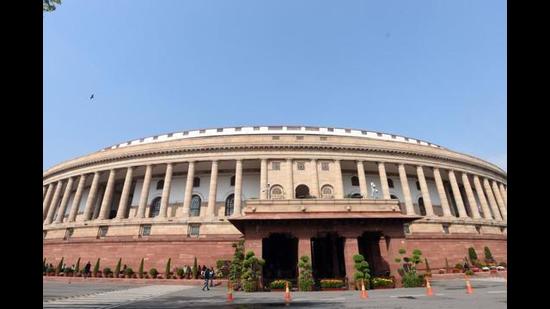The limits of the subjudice rule
The House can discuss any matter of public importance. Freedom of speech of legislators prevails over a self-imposed restriction
The Union government, as reported by this newspaper on Friday, has said that since the Pegasus issue is before the Supreme Court (SC), the matter is subjudice and, therefore, a question on it ought to be disallowed in Parliament. This principle is also being used to block a discussion on the issue in the House. It is another matter that when a discussion on the issue was first demanded, the issue was not before the court.

Res subjudice is a legal term which, in simple language, means that if a matter is before a court, the same matter cannot be brought before another court by the same parties. This rule is contained in section 10 of the civil procedure code. The purpose of the rule is to prevent contradictory orders on the same issue being issued by two different courts. Various rulings by courts, however, indicate that this rule is not invoked liberally while admitting suits.
The subjudice rule has found a place in the rules of the Houses of Parliament and also the state legislatures. This rule prohibits the admission of motions, resolutions and questions for discussion in the House on the ground that the matter is before the court. But it is not applicable to bills or an issue of privilege. The point is that the rule does not have universal application to all types of business of the legislature.
When the rule of subjudice was incorporated in the House Rules, the rule-makers had taken a rather strict view of this, and did not want a discussion in the House to influence the proceedings in the court in any way. But, over a period of time, the legislature gradually changed its approach to the rule.
The problem it encountered was that the moment an issue was brought before the court, the legislature would find itself unable to discuss it, howsoever important it may be from the point of view of public interest. A legislative House, which is the highest representative body of the people, could not be placed in such a helpless situation.
The legislature began finding ways around it. In 1955, Lok Sabha (LS) Speaker GV Mavlankar, while dealing with a subjudice matter with regard to the prize competition bill, 1955, said that what the House would discuss would be different from the point the court might deal with. Mavlankar said: “Whatever law might have been discussed there, in the appellate judgment or the first court’s judgment or if going to be discussed before the Supreme Court is not the point which we are going to discuss here at all.”
But as the issue persisted, in 1967, the then LS Speaker appointed a committee under VS Page, chairman, Maharashtra Legislative Council, to examine the scope of rule of subjudice in a legislature and suggest guidelines to be followed in the application of this rule.
An important recommendation of this committee was that the “freedom of speech is a primary right whereas the rule of subjudice is a self-imposed restriction, so, where need be, the latter must give way to the former”. Thus, the primacy of the freedom of speech of members of the legislature was recognised as against the restriction imposed by the rule of subjudice.
In 1968, the LS Speaker explained the approach to be adopted in the application of this rule. He said, “While on the one hand the chair has to ensure that no discussion in the House should prejudice the course of justice, the chair has also to see that the House is not debarred from discussing an urgent matter of public importance on the ground that a similar, allied or linked matter is before the court of law.” The main concern among legislators was that the House should not be hobbled by undue restriction imposed on its freedom to discuss matters of great public interest.
As a matter of fact, the rule of subjudice was introduced in the rules of the legislature as a matter of caution. The legislature wanted to avoid a situation where a debate on a subject in the House may influence the court, which may impair the fairness and objectivity of a judicial decision. But there has been no evidence so far to prove that this has happened. On numerous occasions, Parliament has discussed issues which were before SC. Major financial scams were debated by the Houses although they were before the court. Thus, the freedom of the House to discuss all issues of public importance was accorded primacy.
Further, the rules of procedure contain a rule which empowers the House to suspend any rule to facilitate a discussion. The rule of subjudice can also be suspended, if need be. This underscores the fact that the rule of subjudice is not immutable or inviolable. Since it has been imposed by the members on themselves, it can be changed when there is an urgent necessity to do so.
Parliament should be able to debate all issues of public importance. If the rule of subjudice is rigorously followed, any person can stymie a debate in the House by just filing a case on the subject in any court in the country. Therefore, the plea of subjudice need not be stretched to absurd lengths.
PDT Achary has served as secretary-general, Lok SabhaThe views expressed are personal



